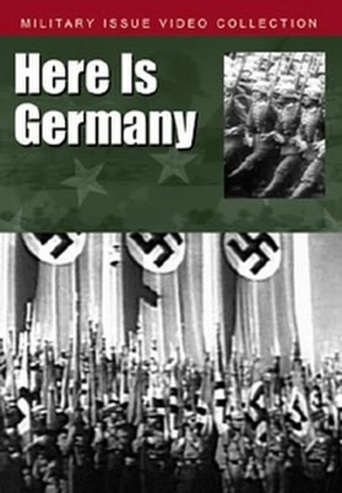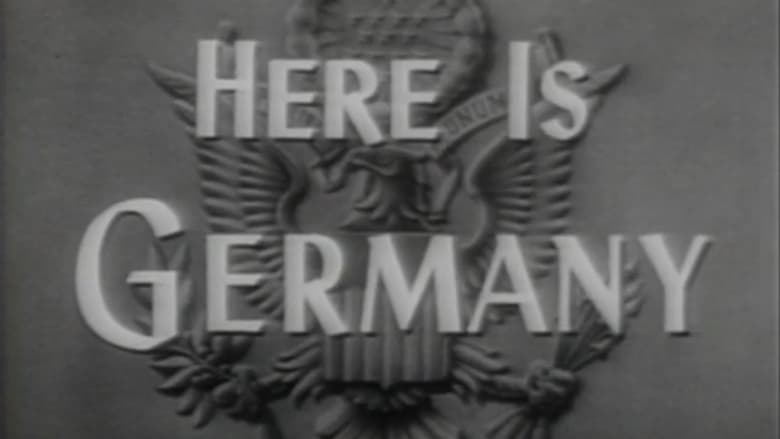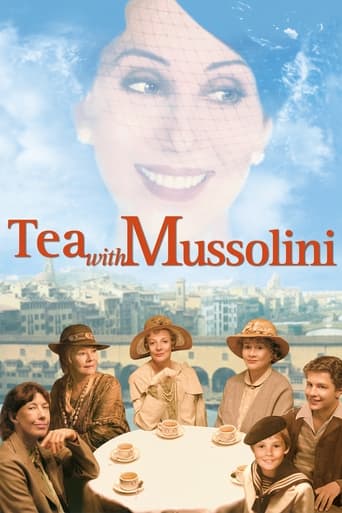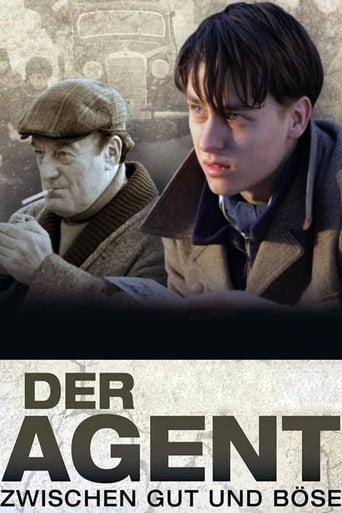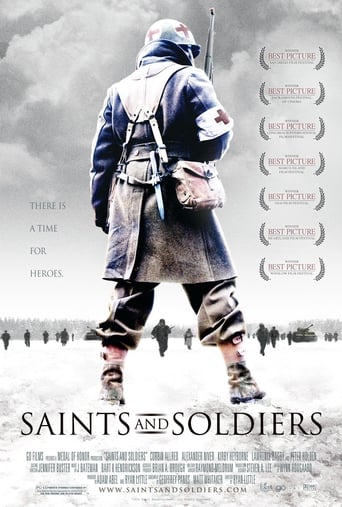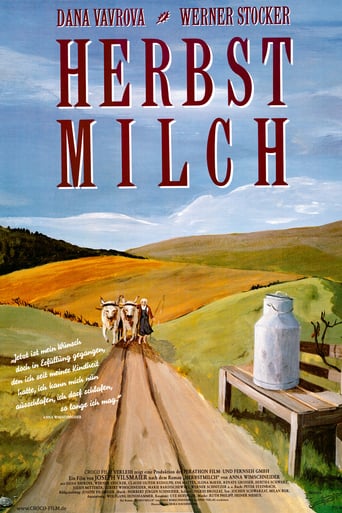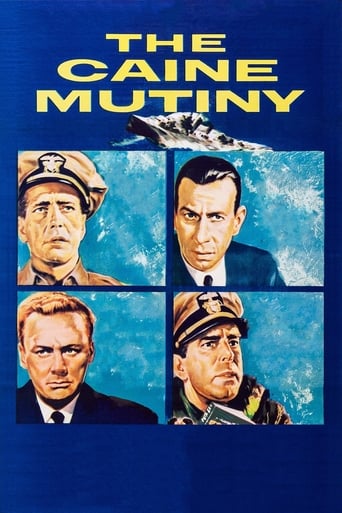Here Is Germany (1945)
A "know-your-enemy" propaganda film similar to "Know Your Enemy: Japan" and "My Japan", films about Japan with the same objective. It contains a history of the prelude to WW II, the death camps and other Nazi war crimes, and commentary on the character of the German people. Directed by Frank Capra, this film is in essentially the same format as his "Why We Fight" series. It was intended to be shown to American troops participating in the invasion and occupation of Germany. But by the time it was ready, events had overtaken it -- Germany was already well on its way to falling -- so the film was shelved. Although it is readily available for public-domain viewing on the Internet, it has never been widely distributed or shown.
Watch Trailer
Cast
Similar titles
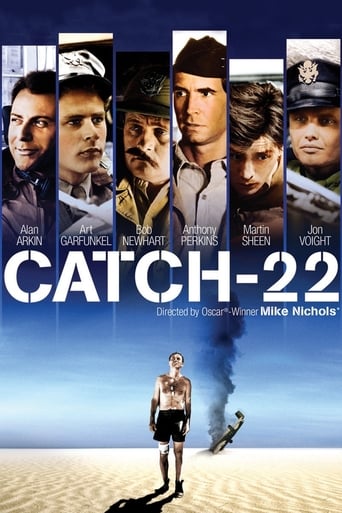
Reviews
Just perfect...
It's a movie as timely as it is provocative and amazingly, for much of its running time, it is weirdly funny.
Blistering performances.
Although I seem to have had higher expectations than I thought, the movie is super entertaining.
SO obviously propaganda that I wonder WHAT was wrong with the USA of 1945 to find this appealing. The history is okay, but they fail to mention that in the seven months between the Armistice of 1918 and the Treaty of Versailles, the Allies invaded Germany, thus violating the Armistice. THIS made Germany furious and lust for revenge. What I found fascinating with this was a new twist to the question of "How did Hitler rise to power?" This documentary alludes to it being the industrial powers who wanted their riches to grow and they needed a (poster child) for the people to rally around. They also needed to overthrow the democracy that had arisen around the end of WWI. They saw Hitler as the man to help them get back on their feet. ... I've never heard this angle before, but it makes more sense to me than Any of the propaganda pitches I'd grown up with. The fact that Hitler grew more powerful than the Rich & Powerful may have wanted isn't & doesn't need to be told. Frankly, my personal suspicion is that THEY remained in power After the end of the second world war.
The Germans are an industrious, musical, law-abiding, tidy people -- says the narrator in this 1945 documentary by Frank Capra -- so how could they have turned into such monsters? Hitler would have said the Nazi adventures of World War II were an expression of German blood, but the writer tells us the ultimate cause was "tradition" or, as anthropologists would say, culture, not nature. Mention is made of famous German-Americans who escaped the trap of German culture: Admiral Nimitz, Wendell Wilkie, Henry J. Kaiser, and others.Then we get an oversimple but still illuminating history of German militarism over the course of a hundred years or so. Americans don't really know much about international history, not even our politicians. We see footage of actors in costume during the period of Frederick the Great and Bismark, and documentary footage of Kaiser Wilhelm, and Hitler. We hear quotes taken from the writing and speeches of various German leaders, including all the above and von Clausewitz. It's kind of amusing. The quotes themselves are so barbaric that they must have been selected for their outrageousness and were surely taken out of context. Give me a Bible or a copy of Deepak Chopra and I'll select quotes that make each of them seem like tracts promoting Social Darwinism.That initial presentation of the Germans as industrious, tidy, and so forth, establishes an eerie echo of Stephen Ambrose's description of a typical American GI's conception of the foreigners he fought with or through. The Arabs were filthy and disgusting liars. The Italians were phony and pushy. The French were dirty and couldn't be trusted. The British were stolid with no sense of humor. But the Germans were great! They knew how to take orders, they worked hard, they didn't cheat you, and they used toilet paper.There is some particularly brutal footage of the victims of Nazi genocides and executions. Not just the pile of mannequin-like naked bodies we've become used to, but close ups of rotting corpses in Belgium, Italy, and Malmedy. There are a couple of live executions too. I'm not sure everyone would want to watch them.So how does the film identify the heavies in the story? Well, Hitler and his goons, obviously. But the narrator comes very close to describing a military/industrial complex as well. This was about fifteen years before a retiring President Eisenhower warned us of the same tendency in the United States. And it gets positively spooky when the narrator describes the steps Hitler took in gaining absolute power -- destruction of unions, intolerance of dissent, a monopoly of the media, the silencing of scientists unless they agreed with the prevailing ideology, the paranoid notion that Germany was surrounded by hateful enemies, the persecution of communists and minorities. At times it sound positively frightening.But it turns comic when the future of Germany is outlined. No more self rule until they learn their democratic lesson. This time there was no "truce," just "unconditional surrender." Their industry is destroyed. They are a beaten people and must admit it. (Nothing about turning the country into a traditional agrarian state, but almost.) The leaders are now the Allied military. We'll show them. And we DID. I think it was called the Wirtschaftswunder. In fifteen years everyone was driving Volkswagens with Blaupunkt radios.Today, of course, they're the strongest economy in Europe, which isn't saying much, given the state of the global economy in general.
Now 65 years old, this documentary (by Frank Capra) is a combination of history and propaganda--where the line ends or begins is beyond my limited knowledge. However, it was fascinating to watch and piece together where Germany was in 1945 and where it is today. Particularly educational were some of the words used by 3 generations of German leadership all favoring strong nationalism and expansionism whilst extolling German superiority. Two weaknesses or strengths, depending on the viewers' point of view, is no mention of the atrocities of World War II and no comparisons between Germany and other expansionist countries (including the USA). I recommend it as a piece of the past, but not to be taken on faith as either accurate or prize worthy as it paints Germany in too harsh a light.
I am surprised that I am the first to comment on this... very gripping film, which seems to be very little documented - not even the director is recorded at IMDb. (I had a feeling it was Frank Capra, but Wikipedia doesn't list this in his filmography.) "Here is Germany" is an American propaganda, or shall we say instructional film which discusses the question why Germans, otherwise having quite some humanist and cultural traditions, could have been so beastly in WWII. To answer that, it reaches quite far back to late 18th century and contrasts revolutionary US and France, as well as Great Britain with its Magna Carta, to the late-feudalistic puzzle of mostly small states in Germany. Focus on Prussia and its mostly victorious wars, then the German-French war of 1870/71, then WWI, then WWII, and drawing continuity lines in the process.The target audience would have been Allied soldiers preparing for the occupation of Germany, and it indeed gives a profound history lesson. Being a German myself, I was aware of most of the facts presented, but the mostly plausible context in which they were put amazed me and gave me good food for thought, especially the sabotaging of the short-lived Weimar republic 1918-33.
